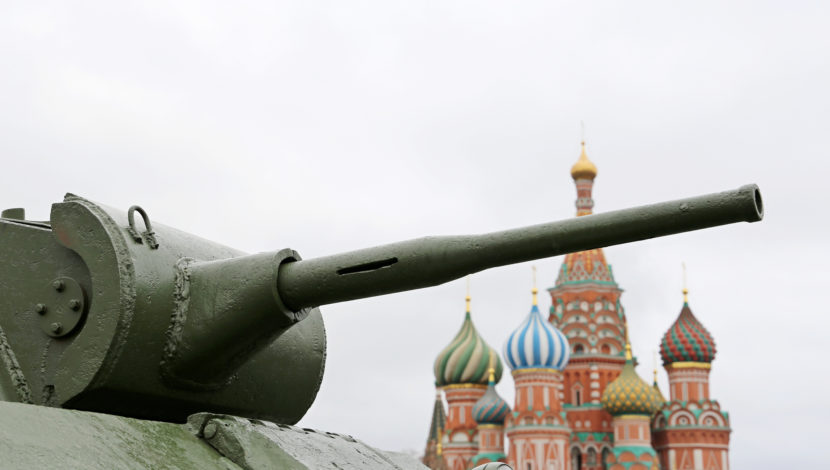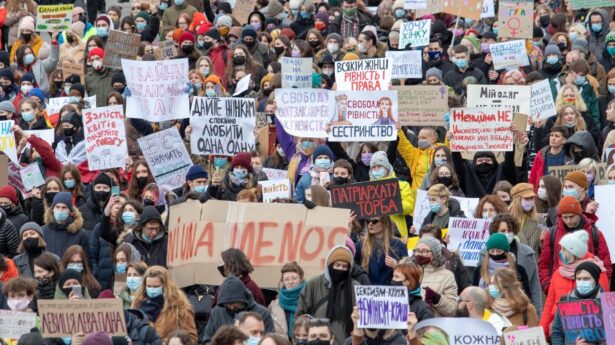The Unitarian Universalist Service Committee advances human rights through grassroots collaborations.
With All Eyes on Ukraine, the Burmese Military Uses Russian-Made Planes to Bomb Its Own Citizens

By on April 11, 2022
Russian-made planes bombing homes, displacing refugees, taking people’s lives—it’s a sight we associate with the brutal war unfolding in Ukraine. But it’s not only happening there—it’s also happening in the Southeast Asian country of Burma (which the military regime calls “Myanmar”).
For more than the past year, the Burmese military, or Tatmadaw, has waged an unrelenting assault on its own citizens. After enjoying effective impunity for their genocide against the Rohingya in 2017, the Tatmadaw leadership was emboldened to turn their guns against the country’s other ethnic groups. In February 2021, they staged a bloody military coup against the country’s elected civilian government and installed themselves in power as a ruling junta.
In the months since, they have killed thousands of civilians, particularly in the country’s ethnic states, such as Karenni state (which the junta calls “Kayah” state). On Christmas Eve of 2021, the Burmese military burned to death 35 defenseless Karenni civilians, including two aid workers. The Tatmadaw air force has frequently conducted airstrikes in Karenni state, destroying villages, killing civilians, and forcing an estimated 90,000 people from their homes.
The same planes that are bombing Karenni villages right now bear a striking resemblance to the ones killing people in Ukraine. Not only because both carry the same deadly payload and are being used to slaughter innocent people, but also because both sets of planes come from the same place: Russia.
As UN Special Rapporteur (and former UUSC President) Thomas Andrews recently documented, the Russian Federation supplied fighter jets and other deadly aircraft to the Burmese junta as recently as December 2021—at the same time the Tatmadaw was gearing up for their latest aerial offensive in Karenni state.
The Tatmadaw has retained close ties to the Putin regime in Russia for years. The bulk of the weapons, equipment, and supplies that that junta uses to perpetrate its crimes comes from the Russian government, which is one of the world’s largest suppliers of military equipment to the Tatmadaw, alongside the People’s Republic of China. Because of these close ties, the junta recently endorsed Putin’s unprovoked invasion of Ukraine. They were one of only a handful of governments around the world to do so.
Yet, even as the Burmese military carries out atrocities against its own people with the same methods, brutality, and equipment that Russia is employing in Ukraine, the conflict in this Southeast Asian nation is receiving far less of the world’s attention. Why?
The global community and press are rightly riveted by the unfolding horror of Putin’s war of aggression in Ukraine, including the growing evidence of war crimes against civilians. But they should extend the same solidarity and compassion to people affected by similar violence and injustices around the world—including in Burma. This is all the more true when the connections between the situations are so clear. In this case, at least one common thread is staring us in the face: Putin’s regime.
To be sure, Russia is not the only country that still supplies the Tatmadaw with arms. China and Serbia do as well. The Ukrainian government has also made arms sales to the Burmese military in the past, though these appear to have stopped after the February 2021 coup, and the Ukrainian government has publicly endorsed the call for a global arms embargo against the junta.
Certainly no government should be willing to conduct trade in deadly weapons with the Burmese military while it butchers its own citizens. All countries should support the global arms embargo. The U.S. government should likewise take steps to ensure its military aid to Ukraine and other countries—however justified—does not indirectly end up in the hands of Tatmadaw fighters.
But between Putin and Ukraine, there is no moral comparison. The Russian Federation under Putin’s dictatorship remains one of the biggest suppliers in the world of deadly machinery to the Burmese junta. And if people feel outraged and dismayed by the sight of Russian planes tearing up Ukraine, they should show the same attention and concern when those same weapons are turned against civilians in Burma.
This past Monday, U.S. Secretary of State Antony Blinken took a historic step of finally acknowledging the reality of the genocide that was perpetrated against the Rohingya people. But these words—however important—must be the beginning, not the end, of global efforts to hold the Burmese military to account for their crimes against the country’s many ethnic groups.
The Burmese military is still today attacking ethnic minorities with atrocious means, and the world must not look away or allow itself to be distracted by the atrocities happening in other parts of the globe. As the examples above show, these injustices are all connected, and enabling one violation of human rights begets another.
The international community must come together to impose a global arms embargo, and the U.S. Congress must pass the BURMA Act to ensure the Tatmadaw cannot continue to enrich themselves and go on to perpetrate other crimes. As Genocide Awareness Month begins on April 1, the time is especially fitting to speak out against mass atrocities in Burma. Take action with UUSC today.
Photo Credit: iStock—Oleg Elkov
